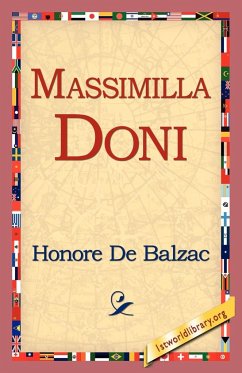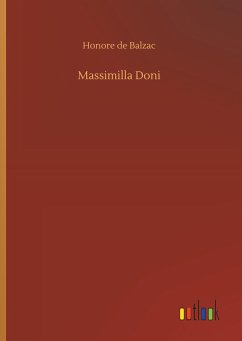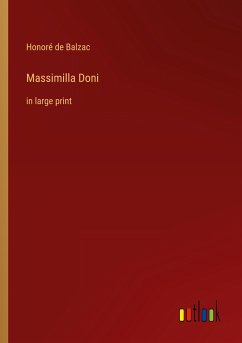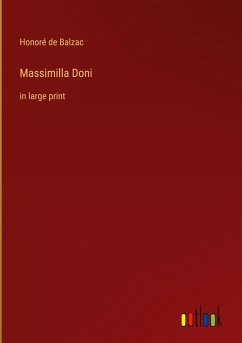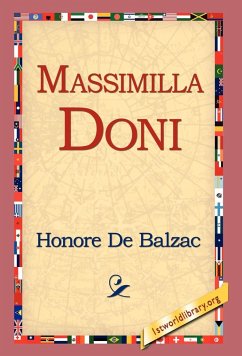
Massimilla Doni
Versandkostenfrei!
Versandfertig in über 4 Wochen
24,99 €
inkl. MwSt.
Weitere Ausgaben:

PAYBACK Punkte
12 °P sammeln!
Purchase one of 1st World Library's Classic Books and help support our free internet library of downloadable eBooks. Visit us online at www.1stWorldLibrary.ORG - - As all who are learned in such matters know, the Venetian aristocracy is the first in Europe. Its Libro d'Oro dates from before the Crusades, from a time when Venice, a survivor of Imperial and Christian Rome which had flung itself into the waters to escape the Barbarians, was already powerful and illustrious, and the head of the political and commercial world. With a few rare exceptions this brilliant nobility has fallen into utter...
Purchase one of 1st World Library's Classic Books and help support our free internet library of downloadable eBooks. Visit us online at www.1stWorldLibrary.ORG - - As all who are learned in such matters know, the Venetian aristocracy is the first in Europe. Its Libro d'Oro dates from before the Crusades, from a time when Venice, a survivor of Imperial and Christian Rome which had flung itself into the waters to escape the Barbarians, was already powerful and illustrious, and the head of the political and commercial world. With a few rare exceptions this brilliant nobility has fallen into utter ruin. Among the gondoliers who serve the English - to whom history here reads the lesson of their future fate - there are descendants of long dead Doges whose names are older than those of sovereigns. On some bridge, as you glide past it, if you are ever in Venice, you may admire some lovely girl in rags, a poor child belonging, perhaps, to one of the most famous patrician families. When a nation of kings has fallen so low, naturally some curious characters will be met with. It is not surprising that sparks should flash out among the ashes.



